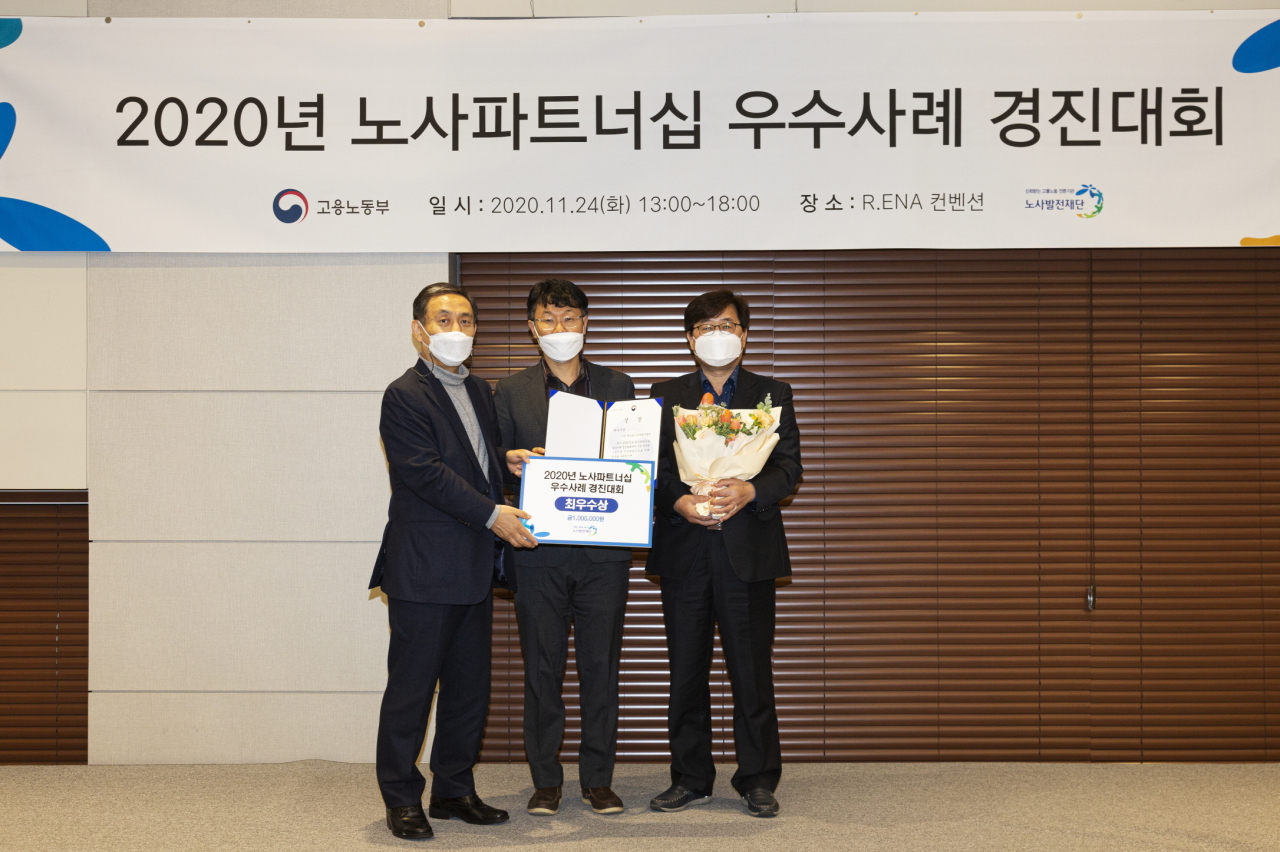KLES helps local baby food firm to solve workforce issue
By Shim Woo-hyunPublished : Nov. 24, 2021 - 17:22

In South Korea, many firms located outside of Greater Seoul suffer difficulties in recruiting young employees, as they continue to move to the capital and nearby areas to find jobs.
Ercohs, a baby food company based in Daejeon, faced the same problem in the past.
The company had to deal with problems caused by its aging workforce as well as a high turnover rate for young workers.
Due to the high turnover rate for young workers, employees who stayed at the company were burdened with additional workload, and it consequently accelerated outflow of manpower.
The generation gap between veteran workers and newly employed young workers was another issue the firm faced.
According to Ercohs, the issues of labor shortage and disharmony in the office environment became worse as the company tried to recruit more people while also expanding its business in different industries.
To solve the issues, Ercohs asked the Korea Labor and Employment Service, a public organization under the Ministry of Employment and Labor, to intervene.
Under the KLES Labor-management Partnership Program, KLES first advised the company to hold additional meetings where workers and executive members could casually discuss the company’s work environment.
Ercohs said the meetings helped labor and management build emotional connections with employees.
After a series of meetings with employees, Ercohs decided to make workers’ schedules more flexible, it said.
The company conditionally reduced working hours by two and allowed workers to add up overtime hours to take off a day.
For those workers not satisfied with their positions, the company also allowed them to change positions.
For Ercohs, the company’s turnover rate became lower as the company started to introduce new measures in corporate welfare. Now it expects better productivity down the road.
The company noted it will reinvest its profit in improving the welfare of the company’s employees.
Ercohs said it will return some of the profit to society as well. As part of the company’s ongoing outreach, it recently donated 147 million won ($124,000) of products to the Green Umbrella Children’s Foundation, a charity that supports children.
Under the KLES program, Ercohs also strengthened its connections with outsourcing firms.
Ercohs now holds meetings with partner firms at least once a year to listen to problems in their businesses. The company also moved up the payment schedule to help the cash flow of partner firms.
“It is important for management to step up first to communicate with workers. Under the KLES program, the company has learned that building intimacy with workers and improving their work environment benefits not only our workers but also the company,” an executive member of Ercohs said.
“The company will continue its efforts to build corporate culture, in which both labor and management can better cooperate,” the executive member added.



![[Herald Interview] 'Amid aging population, Korea to invite more young professionals from overseas'](http://res.heraldm.com/phpwas/restmb_idxmake.php?idx=644&simg=/content/image/2024/04/24/20240424050844_0.jpg&u=20240424200058)
















